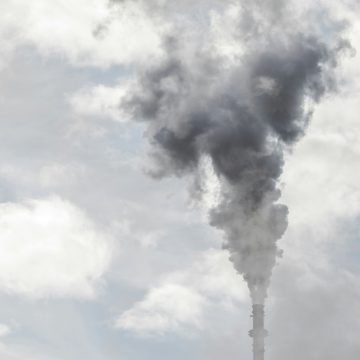Repsol is making further progress in its industrial decarbonisation strategy through renewable hydrogen and will install its second large-scale electrolyser at its Petronor refinery in Muskiz close to Bilbao in Northern Spain. Last September, the company approved the construction in Cartagena of its first large electrolyser, with a capacity of 100 megawatts (MW).
Tag: renewables
Matrix Renewables signs agreement with Tesla for battery project
Matrix Renewables has signed a Full EPC (Engineering, Procurement, and Construction) agreement with Tesla for the design, construction, and commissioning of a 500MW/2-hour (1GWh) standalone battery energy storage system (BESS) located in Eccles, Scotland. This will be the first standalone BESS project for the company in the UK.
M&S Launches RE:Spark to ignite renewables adoption
M&S has announced the launch of RE:Spark, a new supply chain decarbonisation programme developed in partnership with Schneider Electric, a global energy technology leader. The initiative has been designed to accelerate the adoption of renewable electricity across M&S’s global fashion supply chain and is a key part of the retailer’s sustainability strategy, Plan A, which aims to achieve net zero emissions across its value chain by 2040.
H1 2025: solar/wind outpace global electricity demand growth
The increase in solar and wind power outpaced global electricity demand growth in the first half of 2025, according to a report from Ember. Solar alone met 83% of the rise, with many countries setting new records. Fossil fuels remained mostly flat, with a slight decline. Fossil generation fell in China and India, but grew in the EU and the US.
June 2025: first month ever where solar is main EU energy source
In the second quarter of 2025, 54% of net electricity generated in the EU came from renewable energy sources, an increase from the 52.7% registered in the same quarter of 2024. This increase was mostly due to solar energy, which generated a total of 122,317 gigawatt-hours (GWh) in the second quarter of 2025, representing 19.9% of the total electricity generation mix.
€545m package to accelerate Africa’s clean energy transition
European Commission President, Ursula von der Leyen, has unveiled today a €545m Team Europe package to accelerate Africa's clean energy transition. This announcement is an important milestone in the ‘Scaling Up Renewables in Africa' campaign, co-hosted with South African President Cyril Ramaphosa. This campaign raises global awareness and mobilises public and private investments for clean energy generation and access across Africa.
Commission guides States on fulfilling Social Climate Plans
The European Commission has issued new guidance to help EU Member States effectively implement the Social Climate Fund (SCF) and complete their Social Climate Plans (SCPs). Starting in 2026 and mobilising over €86bn, the Social Climate Fund has been created to ensure the transition to a greener economy is fair and leaves no one behind, and to support vulnerable households and small businesses in their efforts to switch to cleaner energy and transport.
President Xi Jinping announces China’s climate commitments
China will, by 2035, reduce economy-wide net greenhouse gas emissions by 7% to 10% from peak levels, said President Xi Jinping of China at the United Nations Climate Summit on 24 September. China will increase the share of non-fossil fuels used in its energy supply to over 30%; expand the installed capacity of wind and solar power to over six times the 2020 levels; make electric vehicles mainstream; expand the National Carbon Emissions Trading Market to cover major high-emission sectors; and establish a climate adaptive society.
Electricity demand surges across the Middle East and N Africa
Electricity demand in the Middle East and N Africa tripled between 2000 and 2024 as populations and incomes rose. Based on today’s policy settings, the region’s electricity consumption is projected to rise by another 50% by 2035 – adding the equivalent of the current demand of Germany and Spain combined.
Taking Stock 2025: US GHGs unsurprisingly higher
“The first seven months of the second Trump administration and 119th Congress have seen the most abrupt shift in energy and climate policy in recent memory,” says Rhodium Group’s annual independent outlook of the evolution of the US energy system. “After the Biden administration adopted meaningful policies to drive decarbonisation, Congress and the White House are now enacting a policy regime that is openly hostile to wind, solar, and electric vehicles and seeks to promote increased fossil fuel production and use.”
First wind turbine installed in Poland by Baltic Power
Northland Power, based in Canada, has announced the successful installation of the first turbine at the Baltic Power project which is a 1.1GW offshore wind farm in the Baltic Sea. Baltic Power is a joint venture between Northland and ORLEN Group and is expected to be Poland’s first operating offshore wind farm.
Clean energy projects – on the map in the UK
A map showing clean energy projects supported by government has been published by the UK’s Department for Energy Security and Net Zero. It supports the government’s clean energy mission to deliver clean power by 2030 and accelerate progress towards net zero. This map includes projects being supported by the National Wealth Fund and Great British Energy.
India says it’s leading – not following – the energy transition
Shri Pralhad Joshi, Union Minister, New and Renewable Energy, said that this is not just an energy transition for India; it’s a global reset. Speaking at the inaugural Indian Venture and Alternate Capital Association’s Renewable Energy Summit, he said that India is leading the way and has already surpassed 44% non-fossil fuel capacity, achieving its 2030 target five years ahead of schedule.
Profitable growth for marketing – without fossil fuels
Campaign group Clean Creatives has put forward a way for the marketing industry to exit fossil fuel relationships while taking up the opportunities available to them from emerging high-growth industries such as renewables, the circular economy and healthcare.
UK to become sustainable finance capital of the world
The UK Energy Secretary, Ed Miliband, has outlined plans to support banks and large companies in developing climate transition plans. To date, about 70% of FTSE 100 companies have voluntarily developed many of the key elements of a transition plan. The UK Government says that widespread transition planning will help provide long-term certainty and clarity to help scale the sustainable finance industry.



